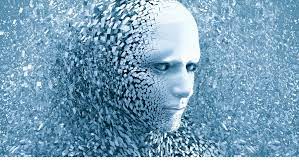What is transhumanism? Will it beyond human biology dominated by technology?

Mobilenews24x7 Bureau
‘Transhumanism’ a word that sounds to be beyond normal comprehension and bit of a mystic in essence. But it has grown to be a buzz as some people in the field of human biology want that to surpass the capabilities of highly technical transformations to set aside natural biology possessed by human.
Transhumanism is a very strong trend among the Western élites. Its aim is to overcome the natural limitations of human biology using technology.
Proponents of transhumanism, including Yuval Harair and Klaus Schwab, believe in ideas such as these:
- that we can improve the human body to create cyborgs, which are fictive organisms in which human organs and technology are seamlessly combined;
- that properties such as human intelligence can be genetically enhanced by germline genome manipulation;
- that mRNA technology will soon allow us to “write circuitry for cells and predictably program biology in the same way in which we write software and program computers” (as worded in President Biden’s Executive Order on biotechnology);
- The interpretations sometimes ordinary know-how.
- that we will soon cure cancer using genetic or even nano-mechanic (tiny machine) therapies;
- that machines will shortly be able to read thoughts;
- that there is no free will because the mind is a collection of biochemical processes;
- that soon we will obtain digital immortality by “uploading our minds to the cloud”;
- that “artificial intelligence” (AI) will soon lead to machines more intelligent than humans;
and either - that AI will make most humans useless to society because all their work will be taken over by machines,
or - that we will be able to genetically reprogram the sex of adult humans in the near future—to name just a few of the ideas they espouse.
Why is all of this unscientific balderdash? And why do so many—including clever people like the billionaire Elon Musk—believe in it? What are the roots and goals of this movement? Let’s answer these questions in reverse order.
What are the transhumanists’ goals?
“Transhumanism” is a blanket term given to the school of thought that refuses to accept traditional human limitations such as death, disease and other biological frailties, says Google.
There are two groups of transhumanists.
The first group sees transhumanism as the ultimate method of self-actualisation (alias self-realisation), supposedly allowing those who think they can afford this eye-wateringly expensive alleged self-improvement to escape the biological limits of their bodies. For example, the transhumanist Martine Rothblatt, whose cells have the XY karyotype but who “became” a woman, says that self-defining one’s gender is just the first step on a path that will lead to a cure for cancer and other lethal diseases and ultimately to digital immortality.
Related to this goal, but of lesser importance, is the idea that transhumanism could promote universal equality of outcomes in the tradition of the French Enlightenment ideal of equality by law (as opposed to the Protestant Enlightenment ideal of equality under the law, or isonomy). In this flavour, transhumanism has an emancipatory character akin to abolitionism (the fight against slavery in the nineteenth century) or feminist emancipation, the absurd idea that both sexes should be equal in every respect. Proponents of this variant of the creed believe that all human beings could be altered using transhumanistic technology to achieve equality of outcomes. We will see in the last two sections below that none of these hopes can be fulfilled.
The second group of transhumanists hopes to use transhumanism as a technical means of power in the spirit of Aldous Huxley, who describes the engineering of human classes with planned properties in artificial wombs. Implanted sensors or molecular effectors (for example, delivering pulsated drug dosages into the circulation) are believed by transhumanists, as is genetic engineering, to afford physical control and manipulation of the masses, to direct their will and to leave most human beings superfluous. For example, Harari believes that artificial intelligence will make most humans useless; according to him, only a small élite of superhumans will be needed in the future. He also thinks that technology can be used to direct and manage the will of the masses.
We will see below that, while technology can be used to manipulate the masses culturally, it cannot be used to control them physically (other than in the pushing of chronic mass intoxication and addiction, which is not a new phenomenon), nor to render them obsolete as a workforce. Also related to this intention is the idea of using the transhumanist narrative to exert cultural power via fear of the future, as has been done with the climate change and the Covid fear narratives. This is by far the biggest effect that the transhumanist narrative has had so far, but it will lose its hold once its preposterousness and anti-scientific character become obvious and once its cultural precondition, the current collective Western spasm of fear, has dissipated.
Self-actualisation
The idea of self-actualisation was originally developed by Pico de la Mirandola and other thinkers of the Italian Renaissance. It was a programme for cultural élites to realise the full potential of their personality and arose with the discovery of the modern individual. The individual was thought to be primarily related to himself and was tasked with maximising his own culture, knowledge and pleasure.
In the eighteenth century, the German Protestant theologian Johann Gottfried Herder reformulated the concept as a philosophy for the masses, but in accordance with Christianity. Self-actualisation was meant to happen in the context of the “liberty of a Christian” (a doctrine as old as the New Testament) who is simultaneously “a freeman unto himself, but a bondsman unto all” (Luther). In the nineteenth century, when the followers of Hegel separated the modern individual from God, one of them, Max Stirner, enunciated a radical agenda of self-actualisation by declaring that each man is his own god, possessing his own uniqueness.






